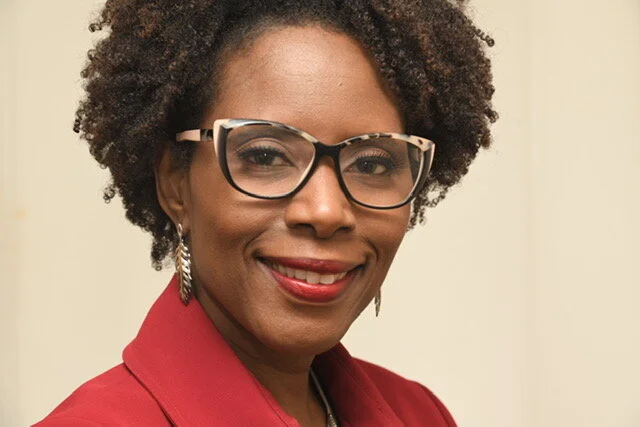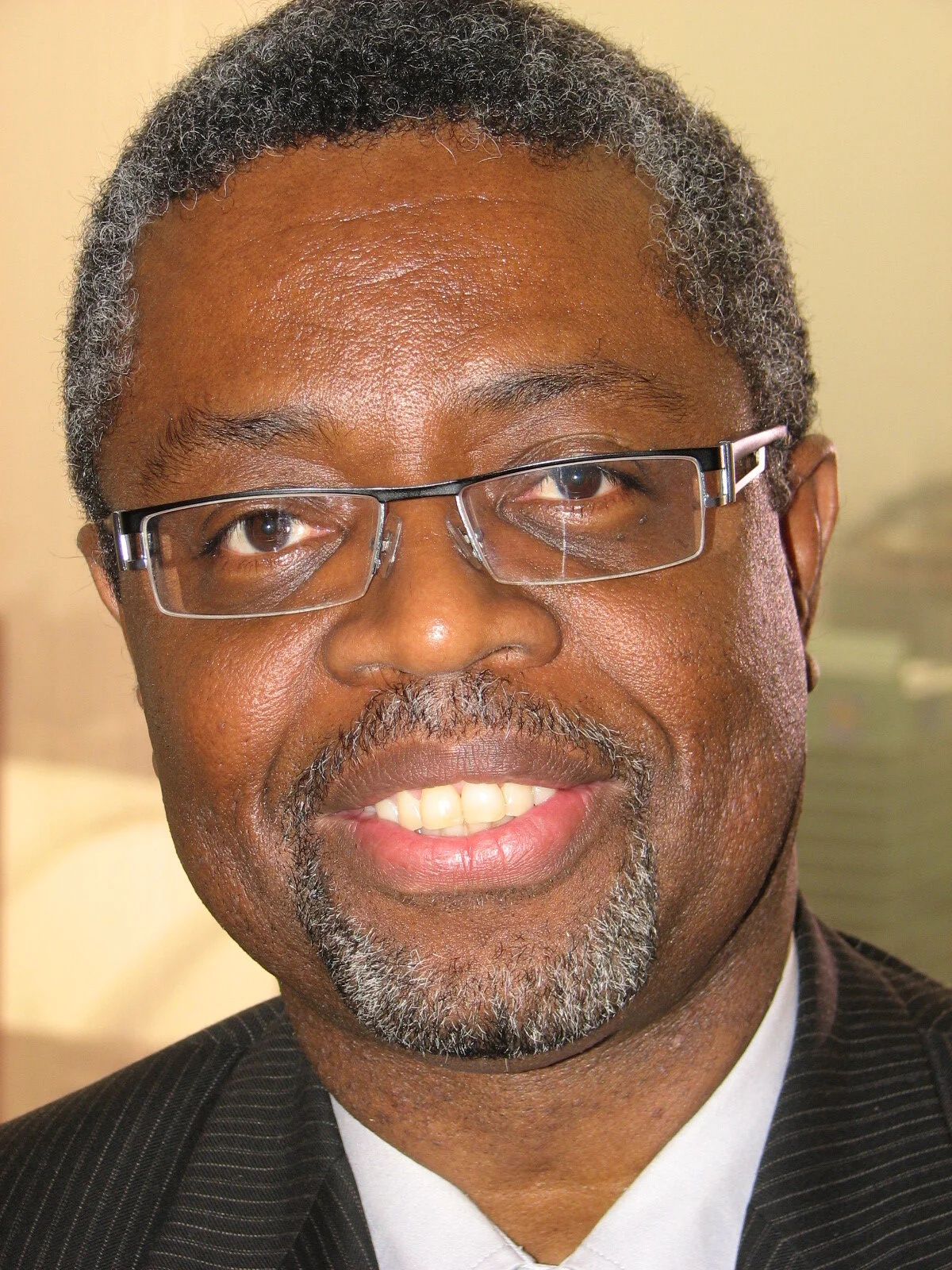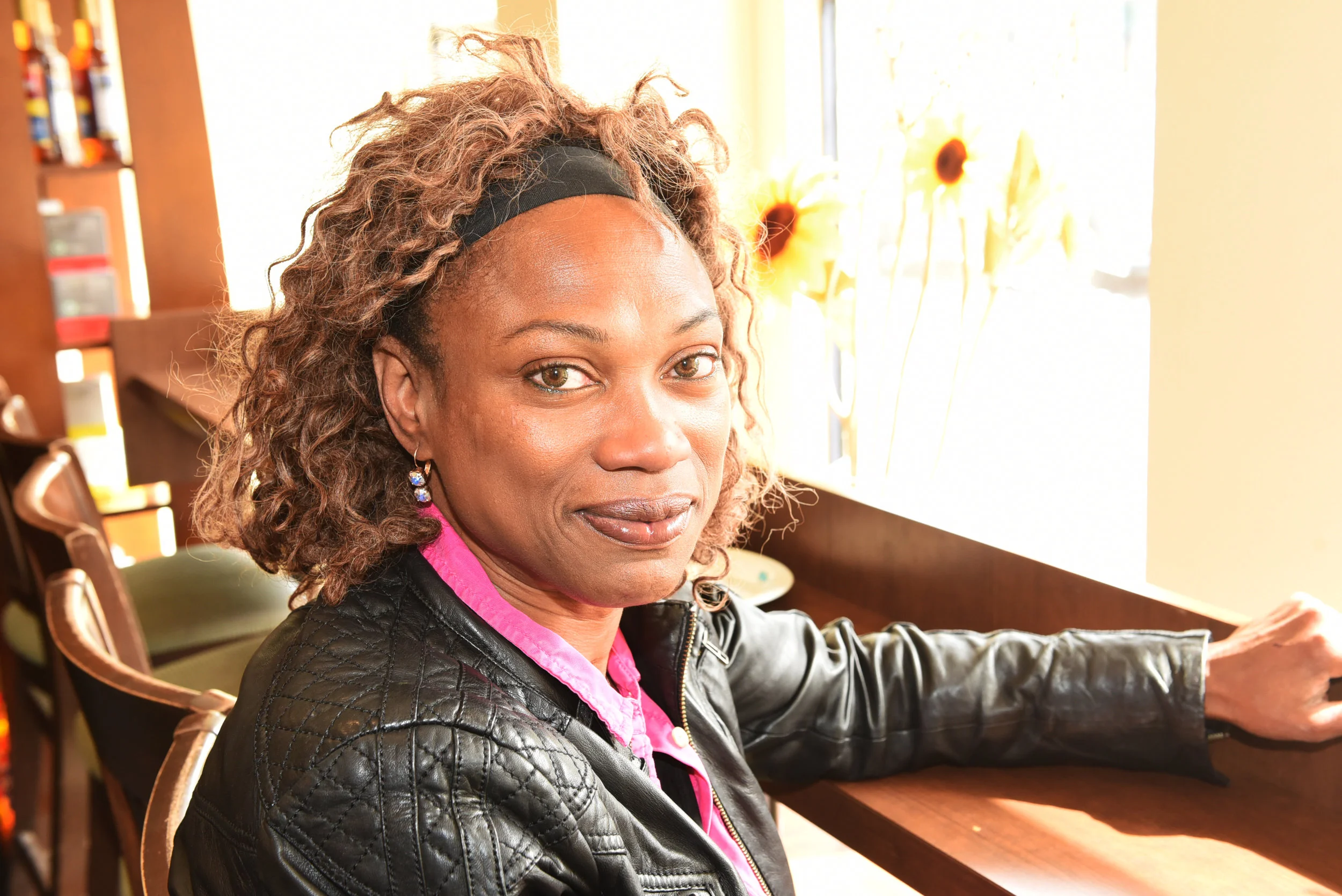Toronto high school principal Anton Skerritt was an Olympian for two countries
June 22, 2021
While vacationing with her son in the Greater Toronto Area recently, Claudia Skerritt delved into her archives and retrieved a clipping featuring him in a community newspaper in the mid-1980s.
Under the headline, ‘Young, Gifted & Black’, the story detailed Anton Skerritt’s academic and athletic exploits while growing up in Scarborough.
Mom has every reason to be very proud of the eldest of her three children who excelled on the sports field and classroom.
Skerritt achieved the rare feat of representing two countries – Trinidad & Tobago (T & T) and Canada – in the Summer Olympics.
The Toronto District School Board (TDSB) Principal is also a trusted mentor for young people in the community.
Leaving T & T at age four to join his parents who had migrated a year earlier in 1967, Skerritt was in the first class of Francis Libermann Catholic High School founded in 1977.
In Grade Nine, he played volleyball, basketball and hockey, ran track and dabbled in gymnastics. Though the unanimous choice as Athlete of the Year, there was something missing.
“My parents had to pay school fees, I had to wear a uniform and I was into sports and we had no gym,” recalled Skerritt. “Right across the ravine, there was a school with a swimming pool, three gyms and a large field with a track to run on.”
Convincing his mom, who at the time favoured catholic schools over the public school system, that the quality of education is the same or even better, he transferred to Albert Campbell Collegiate Institute and excelled in academics and soccer.
Howard University, whose 1971 soccer championship team comprised 11 starters from the Caribbean and Africa, and Eastern Michigan with whom he had signed a letter of intent, were the only two universities to recruit him.
After a soccer tryout with Howard that is a historically Black university, Skerritt was offered a half-scholarship.
“I was able to translate that into a full scholarship eventually because I was coming off the bench in my freshman year which I didn’t like,” he said. “I wanted to be a starter the next season, so I asked the track coach if I could train with his team to get fit. He allowed me to do that and I was a walk-on on the track & field team in 1982.”
Anton Skerritt (third from left back row) went to Howard University on a soccer scholarship (Photo by Ron Fanfair)
Skerritt took part in his first competitive track meet in his senior year in high school.
He won the Metro 800-metre final a few weeks later but was unable to compete in the Ontario Federation of School Athletic Associations (OFSAA) championship that year because it clashed with his Scholastic Assessment Test (SAT) for college admission to an American university.
“It was June 5 and I will never forget that day because I did the test under duress,” recounted Skerritt. “ I tried very hard to finish it in time so I could get to Centennial Stadium, but that didn’t happen.”
In his sophomore season at Howard, he made the track and field team and was a member of the 4x400 unit that took part in the Penn Relays that attracts a large contingent of immigrant Caribbean spectators residing in North America.
Impressed with his showing, Washington-based former Howard soccer player and volunteer assistant coach Winston Yallery-Arthur – a family friend who was instrumental in the university offering him a scholarship – and his law partner Nigel Scott encouraged Skerritt to travel to Trinidad & Tobago to participate in the Olympic trials.
Taking up the offer, he made the qualifying time and was selected to represent his birth country at the 1984 Los Angeles Games.
Though finishing fourth in the first heat in 46.90 secs. and last in the second round in 46.93 secs., Skerritt was enriched by the Olympic experience.
“It was like no other,” he said. “Just imagine being 20 years old in my second year of running track seriously and getting that kind of opportunity. When I was in Toronto, I played soccer. It wasn’t until I got to Howard and started to train with their track team did I really learn how to run.”
Shecky Yeewoon presenting the Iere trophy to Aldwyn McGill in the presence of Anton Skerritt (l) at Lamport Stadium in the late 1980s (Photo contributed)
His desire to attend a university south of the border was fuelled mainly by his quest to become an All-American.
“When I told this to my mom, she brushed me off,” said Skerritt. “After the Olympics, I had a whole different perspective on training, competing and running and I knew that I could be an All-American.”
At the 1985 National Collegiate Athletic Association (NCAA) championship in Syracuse that also featured American triple and long jump champion Mike Conley Sr., he achieved the dream, finishing fourth in the 400 and 500-metre events.
Unable to attend the trials in T & T to select the twin-islands team for the 1986 Commonwealth Games in Scotland because it clashed with the NCAA outdoor championships in Indiana, Skerritt was assured by the islands’ track and field officials that he would be selected based on his times.
That didn’t happen.
“I ran a 45 split as the anchor of my team, but they didn’t pick me,” he pointed out. “They picked around me in terms of guys who were running 47 secs. I was fed up and decided that was it as far as running for Trinidad & Tobago.”
T & T’s loss soon became Canada’s gain as Skerritt finished third at the Canadian championships in Ottawa and secured a spot on the national team for the Commonwealth Games.
“The only reason I went to those championships was because a friend was going and she said, ‘Why don’t you come and run there’? he recalled. “I said ‘sure’ because I was training. I wasn’t even registered with a Canadian track club at the time.”
Leading off, Skerritt along with Andre Smith, John Graham and Atlee Mahorn won a bronze medal in the 4x400-metre relay in a time of 3:08.69.
Finishing in the top 16 at the World championships in Rome in 1987, where he clocked an outdoor personal best 45.62 secs. in the 400-metre semi-final and ran the fastest first round leg in the long relay for Canada which failed to make it to the semi-finals, guaranteed him a ticket to the Seoul Olympics the following year.
“I only had to prove I was fit to qualify,” said Skerritt who was second at the Canadian championships behind Jamaican-born Carl Folkes who is a real estate broker.
With Courtney Brown refusing to run for Canada on the morning of the first round heat, the quartet of Skerritt, Folkes, John Graham and Paul Osland finished fifth in their heat in 3:09.52 and eighth in the semi-finals in a disappointing 3:09.48.
Ben Johnson testing positive for steroids and being stripped of his 100-metre gold medal was the Games’ major story.
After the 1986 Commonwealth Games, Skerritt joined the Mazda Track Club that included Johnson, Mark McKoy, Desai Williams, Tony Sharpe and Angella Taylor-Issajenko who admitted using steroids.
Did the middle-distance athlete consider using performance-enhancing drugs?
“No”, is Skerritt’s definitive answer. “My coach, Percy (Duncan) had heard from Charlie (Francis) that I couldn’t run any faster without using steroids and Percy’s response was, ‘nonsense’. I wasn’t interested in doing drugs because at the time it was rumoured that you could die if you took them.”
Duncan, who co-held the world 100-yard record of 9.4 secs. with Jesse Owens, coached Skerritt from April 1987 until the athlete left the sport two years later.
The former Guyana police officer represented the South American country at the 1959 Caribbean Track & Field championships and the Southern Games in Trinidad & Tobago, co-founded the Heritage Track & Field competition in Toronto in 1970 and coached Johnson in his comeback after the drug suspension ended in 1991.
“Percy was like a father to me,” Skerritt, an active member of the Nubian Book Club, said. “He was very instrumental in getting me from the 46s to 45. I didn’t touch a soccer ball from the time I joined him until I left the sport in 1989. Percy was a gem.”
With a Bachelor of Business Administration degree, he worked as an accountant for a few years prior to focusing on track and field.
In the early 1990s’, Skerritt switched careers, becoming a full-time teacher.
“I didn’t have my Certified Public Accountant designation, so I would have been going back into the field as a student accountant which was paying around $25,000 annually,” said the 2014 Howard University’s Sports Hall of Fame inductee. “ I figured I could go to Teachers College for a year, work at the same time which I did as a Supply Teacher and graduate and earn about $36,000 after graduation.”
He was a Vice-Principal at two York Region District schools for nearly four years before being appointed Principal at Birchmount Park Collegiate Institute in September 2020.
Birchmount Park Collegiate Institute Principal Anton Skerritt (Photo by Ron Fanfair)
As the only Black male VP while at Sutton District High School for six months in the first half of 2017, Skerritt was confronted by a White student who called him an ‘Effing N…..’.”
“The first question my Principal asked me was, ‘Did you hit him’? the 1998 Harry Jerome Award winner said. “I went to the Superintendent and Director and told them this wasn’t a place where I was going to survive professionally and I needed to be moved which did happen. That was one of the lowest points in my professional career along with having a Principal at Milliken Mills High School not appreciate my work.”
There have been a few racially charged incidents at Sutton District High school.
In 2013, it banned students from wearing clothing with the Confederate flag and, a year later, racial slurs were hurled at a Black student who was beaten outside the school.
Earlier this year, Skerritt launched a consultancy firm aimed at connecting aspiring Canadian student athletes who are seeking scholarships.
“In the 1980s when I was coming up, there weren’t too many students getting scholarships to go to school in the United States,” he said. “Using some of the my connections that young people don’t have access to, I want to help them get to where they want to be.”









